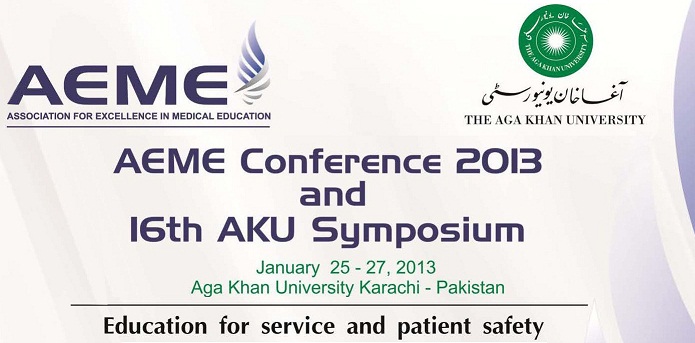Day 1 : Poster Presentations (Theme: Patient Safety)
Perception & barriers regarding self-signed & relative signed informed consent
Location
Auditorium Pond Side
Start Date
26-1-2013 10:30 AM
Abstract
Background: Informed consent is the process by which a fully informed patient can participate in choices about him/her health care. Informed consent should be given by the patient or next of kin voluntarily without coercion and for reasons that could be understood by the patient /next of kin in the light of relevant information highlighting the need for diagnostic/treatment, procedure, possible risks involved in the proposed procedure and alternative course of treatment.
Methodology: Cross sectional study conducted in Aga Khan University Hospital Karachi, Pakistan. The patients identified through simple random sampling patient who has his/her first day of stay in ward after surgery. The data double entered on epi data version 3.1 and analysis performed on SPSS version 16.
Result: Overall, out of the 400 study participants 233 (58.3%) signed the consent form while other relatives 167 (41.7%) signed the surgical consent form on behalf of the patient. Perceived barriers found to be associated with not understanding/signing the consent form includes, language barrier (AOR=4.6, 95%CI: 1.9-5.2), medical terminologies used (AOR=2.7, 95%CI: 1.1-6.7), time allocated was not enough (AOR=3.8, 95%CI: 2.8-4.7), cultural/traditional reasons (AOR=1.5, 95% CI: 1.1-3.5) and being less educated were the associated perceived barrier.
Conclusion: This comparative study shows different perception of patient and their relatives signing a consent form. Participants signed the surgical consent form themselves reported the importance of this document as compare to relatives who signed the form on their behalf.
Key words: Consent, barrier, perception regarding consent ERC No. 1605-FM ERC 2010
Perception & barriers regarding self-signed & relative signed informed consent
Auditorium Pond Side
Background: Informed consent is the process by which a fully informed patient can participate in choices about him/her health care. Informed consent should be given by the patient or next of kin voluntarily without coercion and for reasons that could be understood by the patient /next of kin in the light of relevant information highlighting the need for diagnostic/treatment, procedure, possible risks involved in the proposed procedure and alternative course of treatment.
Methodology: Cross sectional study conducted in Aga Khan University Hospital Karachi, Pakistan. The patients identified through simple random sampling patient who has his/her first day of stay in ward after surgery. The data double entered on epi data version 3.1 and analysis performed on SPSS version 16.
Result: Overall, out of the 400 study participants 233 (58.3%) signed the consent form while other relatives 167 (41.7%) signed the surgical consent form on behalf of the patient. Perceived barriers found to be associated with not understanding/signing the consent form includes, language barrier (AOR=4.6, 95%CI: 1.9-5.2), medical terminologies used (AOR=2.7, 95%CI: 1.1-6.7), time allocated was not enough (AOR=3.8, 95%CI: 2.8-4.7), cultural/traditional reasons (AOR=1.5, 95% CI: 1.1-3.5) and being less educated were the associated perceived barrier.
Conclusion: This comparative study shows different perception of patient and their relatives signing a consent form. Participants signed the surgical consent form themselves reported the importance of this document as compare to relatives who signed the form on their behalf.
Key words: Consent, barrier, perception regarding consent ERC No. 1605-FM ERC 2010

